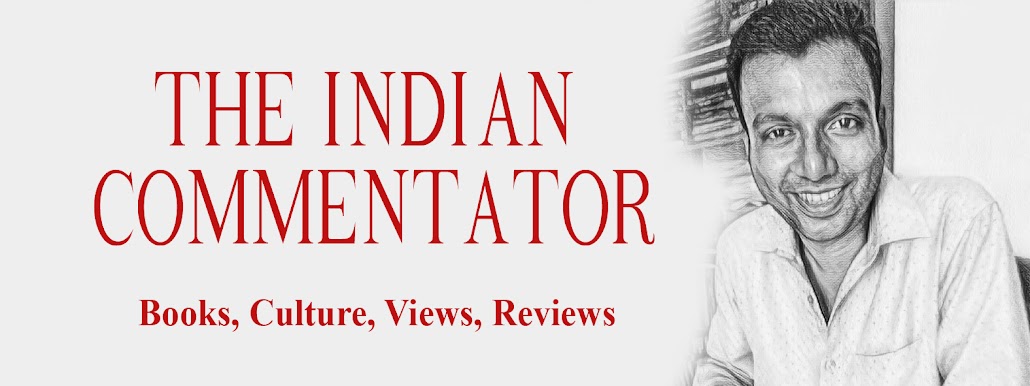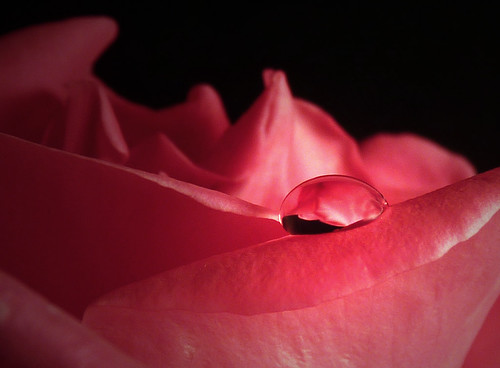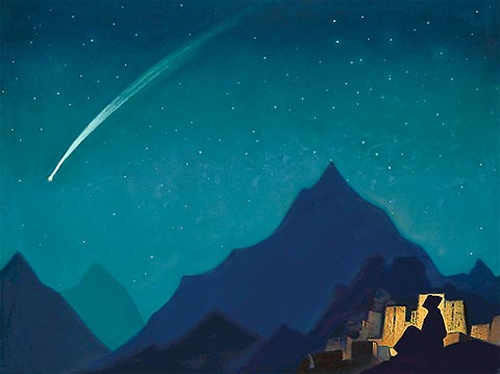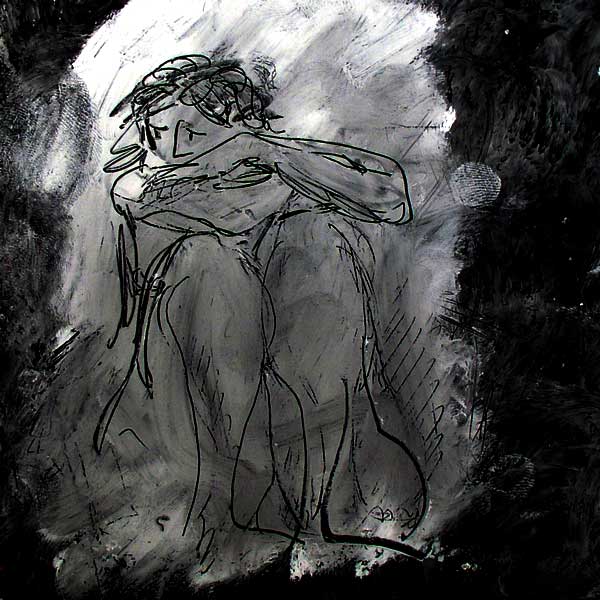I like to start writing a new story each day; stories without endings, stories that are born out of a sudden whim and carried forward with obsessive spontaneity. I am just like any other writer, a naive creation of God, who believes words can cure him of his solitude, when every one else around him has lost their trust on words. But his hope is miraculous, because it never tires of its mission. It urges him to write, to spend time with words—polishing them, practicing his skills, pruning his diligence to perfection, looking failure in the eyes, succeeding, dreaming—and disregard his family’s advices to look for a job with a permanent financial source.
But as most of the writers who are part of the struggling community, who are not yet blessed with the gaze of the publishing industry, it is difficult for me, even now, to write about my dwindling financial situation, my struggle for a life. Perhaps I could write a story, search for a solution to this situation or just try to create an altered reality through the power of words that could protect my being form deteriorating from the struggle for livelihood. The struggle for a life extracts all our attention, and leaves us blind, deaf, dumb and senseless. The writer, the artist, the musician vanishes, without even the charity of a proper cremation. At this point words, become formless sounds, and thoughts run out of paper and jump out of the terra firma and fly in the air, forcing us to find someone to share them with. The fear of wasting words is the worst kind of it, only a writer knows.
Prakash Pacha was someone I found in Kannur, with the above mentioned intention. Well, to be frank, the intention was considered later. The finding had taken place in a small tea shop near the Old Bus stand. He was drinking tea sitting on the only bench available. When I came in he moved in order to make space for me, but in this attempt he spilled some tea on my jeans. I looked at him in the eyes. His face, which was calm a moment before, changed defensive and this, provoked me further. But considering the risks of entering into a brawl with a stranger in a city which is famous for its thugs and communists, I immediately put on my mask of indifference and steered my gaze away from him.
Then I noticed something under the bench near his legs. It was a framed picture and a hand bag with painting brushes peeping out of its mouth. An artist! “Are you an artist?” I asked, unable to find the time to hide my facial expressions suggesting my relief to find someone with a destiny which is as naive as mine. “Yes” he answered with a cool air, as if I am just another of his fans, when in fact I had never seen his art works, and would never perhaps see them either. I was only interested in the fact that he was an artist, just to share a fellow feeling, the presence of someone with whom I can effectively share those words that took the eloping flight from their comfort zones.

Then he told me his name, extending his hand. Prakash Pacha, Pacha being his brush name, meaning green, in Malayalam, his favourite colour. One thing is sure we can never be friends, I thought. I cannot differentiate between green and blue. I can see green, but for me it appears very much an uncertain variety of blue. “It’s nice to meet you, a writer.” He said as his parting words. I smiled and kept that smile for as long as possible allowing no word to escape this time, thinking he was not the right one for sharing those flying words of worldly agony. But the very next day we met again, in the same shop. And this time there was something different. Pacha was warm. He asked me about my favourite authors and books. And though we parted soon that day, we promised to meet each other at the same place the next day, at the same time. And I could see the tea shop owner, sealing off our pact with his smile, in the prospect of two potential customers. And I was happy too, for there was a companion who is from the art world, and perhaps in similar life situations as mine.
“I am an art teacher, in the Art College, in Kannur. I do it for money, for sustaining my life. Being an artist and art teacher are different things, entirely.” He said on our next meeting. So here he was, sharing his life story with me, just the way I thought it, and it surprised me how his story resembled mine. And this is one of the reasons for certain deft generalizations I undertook in the first paragraph. I could be wrong in my conclusions. I am very well aware of the fact that best learning is the learning from within, but due to his essential temperaments, the layman always goes for the outside knowledge, what others say.
“Nobody knows what I feel in my mind. Perhaps you would know, because you are an artist, too.” He said in our fifth meeting. “I don’t know what to do. Yesterday I thought of suicide.”
Instead of occupying the position of weakling, and being consoled, I found myself aghast in front of Pacha, as his resort, thinking how I could suggest help to this naïve sibling of the art mother.
“As you once said, being an artist and an art teacher are different experiences, being a writer and a painter, too are different states of being. But still, this is what I do when I am down: I write whatever I feel.” I lied. The struggle for a life extracts all our attention, and leaves us blind, deaf, dumb and senseless. The writer, the artist, the musician vanishes, without even the charity of a proper cremation. At this point words, become formless sounds, and thoughts run out of paper and jump out of the terra firma and fly in the air, forcing us to find someone to share them with. This was the very intention I placed as the reason for the daily meetings with Pacha. But now, finding no other solution to help him in his problems, I suggested writing.
Even though, we promised to meet tomorrow, I could not find him the next day. The tea shop owner too confirmed not seeing him that day. For another one week he was absent without any news and allowing me no guesses. The struggle for a life extracts all our attention, and leaves us blind, deaf, dumb and senseless. The writer, the artist, the musician vanishes, without even the charity of a proper cremation. Perhaps he was disillusioned from my friendship. He might have tested my solution and miserably failed.
I met him again, but after four weeks. “I tried what you suggested.” Pacha said. “It was miraculous. I found peace with myself and the world. I was trying to dedicate as much time as possible to write. I almost wrote a memoir.”
Sometimes, a peculiar feeling follows certain revelations, a feeling that verges jealousy. Perhaps writing is like the taste of honey sucked from flowers in a garden, each taste differently. Perhaps this too is a revelation that even a painter can do what sometimes a writer can’t achieve, with words.
































